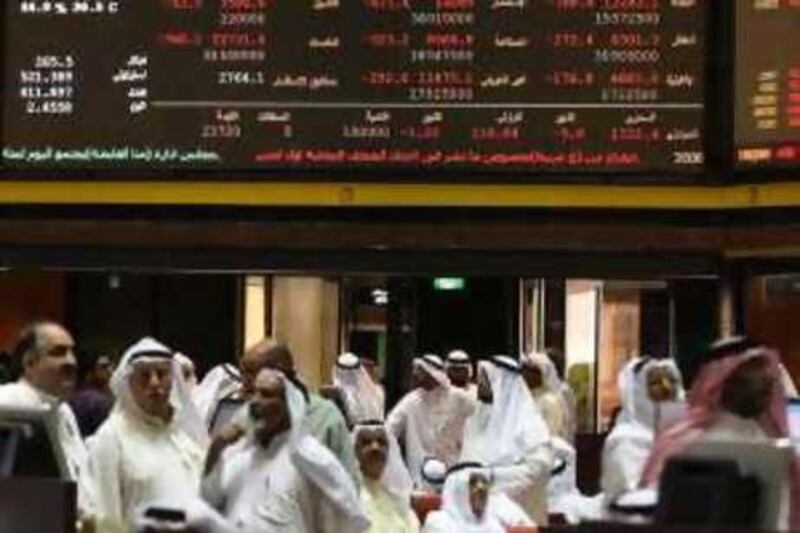A major government-owned investment fund in the Gulf is breaking with tradition by redirecting more of the region's windfall oil revenues into local markets and direct investments, a trend analysts say others may follow. The funds have traditionally sent nearly all of their funds abroad to the US and Europe, aiming to diversify risks away from those they face at home - but recent instability in western financial markets is making Middle East investments more appealing.
The Kuwait Investment Authority (KIA), among the largest sovereign wealth funds (SWFs) in the world, said on Monday that it would begin boosting its contributions to funds active in the local market. The shift in strategy comes amid signs that even the most established US banks are not immune to the latest round of financial contagion. At the same time, Gulf markets are showing signs that they would be as good a place as any to weather the financial storm.
SWFs around the world manage an estimated US$2.15 trillion (Dh7.9tn) in assets. As a cash shortage seizes global markets, these funds' ability to quickly inject enormous amounts of liquidity into a market has made them among the world's most powerful economic players. "In terms of new investments outside the region, they will probably... wait a little bit," said Gundi Royle, the managing director of investment banking at The National Investor. "Here in the UAE, the core industries will continue to be good places for investment, irrespective of the financial crisis."
During the past year, several large Gulf funds have used the fallout from the credit crisis as an opportunity to snap up large quantities of western bank stocks at bargain prices. However, as US financial stocks continue to fall, some sovereign funds are facing criticism for sending local money abroad. The Abu Dhabi Investment Authority (Adia), which made international headlines with its purchase of a $7.5 billion stake in Citigroup last November, has lost nearly half of that investment since the stock sank from $30.70 at the time of purchase to $15.24 on Monday. The KIA purchased $5bn of preferred stock in Citigroup and Merrill Lynch in January. Both stocks have fallen significantly since the purchases.
China's government also faced a particularly strong domestic backlash after it suffered significant losses in a string of high-profile purchases of US financial firms, beginning last year. Similarly, the Korea Development Bank backed out of a possible deal with Lehman Brothers, after facing opposition back home. Although SWFs are notoriously secretive about their investment strategies, the funds say they are investing in the long term and are unfazed by month-to-month, or even year-to-year fluctuations.
The UAE sovereign funds managed their money "like a portfolio", Ms Royle said. "You're not all of a sudden going to go overweight on emerging market risk because the US is doing poorly. Still, they are probably going to re-weight their portfolio a little bit more towards entry opportunities than in mature market entries. They are consistently looking further and further east." Fabio Scacciavillani, an economist with the Dubai International Financial Centre, also said Gulf SWFs were likely to begin focusing more on local markets amid the recent sell-off. "Local stock exchanges have been victims of a contagion effect. Equities as an asset class are being battered," he said. "But if you look carefully at the balance sheets, you can definitely find some good deals in the local markets."
As oil prices continue to fall from their July high and widespread speculation in the property market is beginning to raise the spectre of a downturn, there is hope that Gulf funds may be able to rescue local markets, should they face dramatic shocks. Daniel Kaye, the senior economist at the National Bank of Kuwait, said the KIA move might be an attempt to shore up local equity markets, given that the Kuwaiti Stock Exchange had fallen more than 20 per cent from its high in June.
There is speculation that other SWFs across the region may face internal political pressure to use their enormous amount of money to shore up collapsing local stock markets, as KIA may have done. But Udo Schaeberle, a fund manager at BHF Bank, said he doubted that would happen. "Sovereign wealth funds didn't do it in the last crisis in 2006, and the crisis now is not as bad as last time," Mr Schaeberle said. "Lots of people complained that Adia didn't do anything in 2006, but this time things are much more healthy." tpantin@thenational.ae





